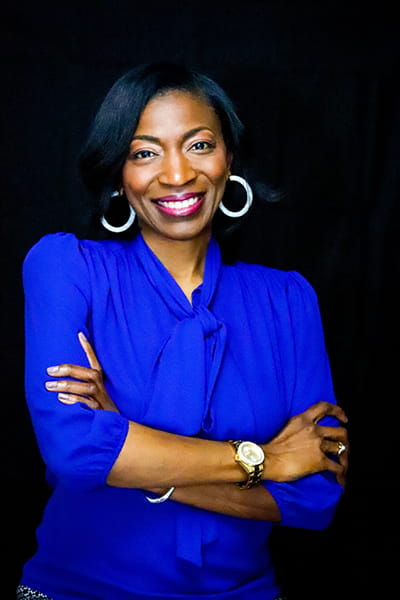
The number of women-owned businesses increased by 58% between 2007 and 2018, nearly five times the overall average, according to American Express. Despite this, men tend to start their businesses with nearly twice as much financial capital than women – $135,000 vs. $75,000 – according to the National Women’s Business Council.
“I read a lot of research about women’s access to capital,” says Dr. Brown, a Walden University Doctor of Business Administration (DBA) graduate. “It ignited my passion for that issue, and I wanted to see what I could do to bring awareness to it.”
Dr. Brown helps small companies with financial education and consulting, including teaching entrepreneurs how to start firms and set up financial, legal and compliance programs. She took a specific interest in gender financing discrepancies, which led her to her dissertation, “Business Funding Strategies for Women-Owned Small Businesses.” One of the purposes for her doctoral study was to effect positive social change by enabling women to be leaders in advancing sustainable economic growth that benefits their communities.
In her research, she discovered that women tend to make business financing decisions in a “pecking order” behavior. They will first seek financing from their own funds before pursuing external debt funds. If that’s not enough, they will obtain equity funding if no other avenues exist.
“Women have a personal preference when it comes to their level of risk,” says Dr. Brown. “That plays a huge part when women decide what funding they want to pursue. Many women think banks will deny them due to credit. Others don’t know what opportunities they can seek.”
According to Biz2Credit, the average credit score for female owners was 588 in 2018, behind the average credit score of 613 for men. Dr. Brown says women are also often at a disadvantage from the start in pitch meetings, which Boston Consulting Group confirms. Its study reveals “more than men, women founders and their presentations are subject to challenges and pushback. For example, more women report being asked during their presentations to establish that they understand basic technical knowledge.”
Dr. Brown is focused on teaching her clients about alternate forms of business funding. The U.S. Securities and Exchange Commission (SEC) is now regulating crowdfunding, making it more desirable since the average person can make small investments into businesses. Some crowdfunding platforms cater just to women, including iFundWomen and Women You Should Fund. According to Forbes, women run 47% of successful campaigns on the crowdfunding site Indiegogo.
“Women tend to gravitate towards crowdfunding because it’s not a bank,” says Dr. Brown. “They don’t experience the same kind of roadblocks and intimidation that can come from sitting across from a banker.”
Dr. Brown knows the trials of being a female entrepreneur, having left a job with the U.S. government to become an entrepreneur about ten years ago. She always makes sure to promote due diligence to her clients. This includes writing a strategic plan for how the firm will operate, determining how much funding is needed and where it will come from. She advises entrepreneurs to be open to feedback and change strategies when they don’t see an outcome at a certain point.
“There was a learning curve for me, and it was tough financially,” says Dr. Brown. “I had family members tell me to leave my business and go back to work in the government.”
Now, Dr. Brown considers herself not just a coach for small and women-owned companies but also a full-time advocate. She’s been regularly posting on social media about the coronavirus relief options, including Small Business Administration (SBA) loans and provisions under the Coronavirus Aid, Relief and Economic Security (CARES) Act. She wants her followers to know the details and what is required to seek assistance.
“I feel I must help get information out to people,” says Dr. Brown. “One of my gifts is teaching, and my time at Walden grew that 100-fold.”
In her doctoral study, Dr. Brown dedicated her research to “all the young girls and young women who want to be business owners” because she wanted to “help make conditions even better for them when they start their businesses.”
“Walden motivated me to want to be something more,” says Dr. Brown. “I am going to use my Walden degree to help even more people.”



